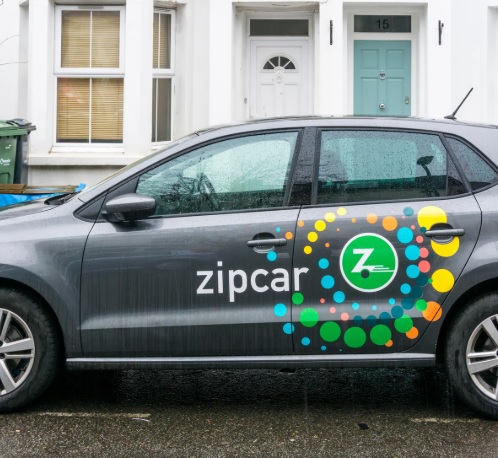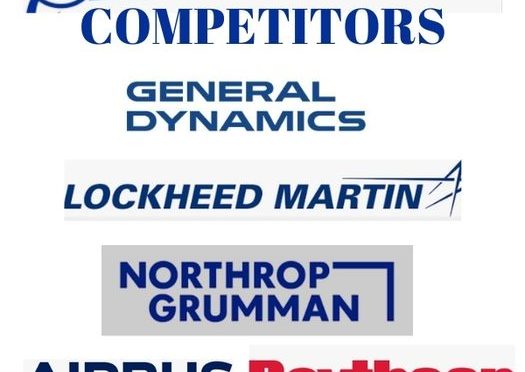Introduction
The car-sharing industry has witnessed significant growth in recent years, and Turo has emerged as a leading peer-to-peer platform in this space. However, the competitive landscape is diverse and dynamic. Turo competitors range from other car-sharing services and traditional car rental companies to innovative mobility solutions. Understanding the strengths and weaknesses of these Turo competitors is crucial for consumers exploring car rental options and businesses assessing the evolving transportation sector.
In this article, we will provide an in-depth analysis of Turo competitors, their unique offerings, and their impact on the car-sharing market. Additionally, we will answer some frequently asked questions to help you better understand the dynamics of this industry.
Turo and The Rise of Car Sharing
Car sharing has revolutionized the transportation industry by offering flexible and accessible alternatives to traditional car rentals. Turo, in particular, disrupted the market with its peer-to-peer model, connecting car owners directly with renters. This approach provides a wider variety of vehicles, often at more competitive prices, and allows renters to enjoy unique car experiences.
However, the rise of car sharing has also attracted competition. Companies like Getaround and Zipcar cater to urban dwellers with short-term rental needs, while traditional giants like Enterprise and Hertz continue to dominate the global car rental market. Additionally, new entrants like Uber Rent are leveraging existing platforms to offer integrated car rental solutions.
Key Turo Competitors
Turo faces competition from a range of companies, each targeting different segments of the car-sharing and rental market. Below is a detailed analysis of its most prominent competitors:

Company Overview
| Feature | Turo | Getaround | Zipcar | Enterprise Holdings | Hertz | Uber Rent | Avail | Kyte |
| Founded | 2009 | 2009 | 2000 | 1957 | 1918 | 2021 | 2020 | 2019 |
| Focus | Peer-to-peer car sharing | Peer-to-peer car sharing | Hourly and daily rentals | Traditional car rentals | Traditional car rentals | Aggregator of rentals | Peer-to-peer rentals | Delivery-based rentals |
| Target Audience | Travelers, locals needing specific vehicles, those seeking unique car experiences | Urban dwellers needing short-term rentals | Urban dwellers needing on-demand access to cars | Travelers, businesses, individuals | Travelers, businesses, individuals | Uber users seeking rentals | Travelers seeking simplicity | Urban renters needing doorstep delivery |
| Key Features | Wide variety of vehicles, flexible pricing, insurance options | Instant booking, remote access via app | Membership-based model, urban focus | Large fleet, airport locations | Airport locations, loyalty programs | Integration with Uber app | Insurance included, simplified process | Cars delivered to your door |
| Primary Market | US, Canada, UK, Australia, France | US, Canada, Europe | Major metropolitan areas | Global | Global | Cities with Uber presence | US | US |
Market Share (Approximate) of The Turo Competitors
- Traditional Car Rental Companies (Hertz, Enterprise, Avis): These companies hold the dominant share of the overall car rental market due to their extensive fleets and established presence worldwide.
- Turo and Getaround: Significant players in the peer-to-peer car-sharing segment, with Turo leading in terms of vehicle variety and geographic reach.
- Zipcar: Holds a niche market share, particularly in urban areas with its membership-based car-sharing model.
- Uber Rent: A growing player in the aggregator space, leveraging Uber’s existing user base.
- Avail and Kyte: Emerging competitors focusing on convenience and simplicity, targeting specific demographics.
(Note: Market share varies significantly by region and type of rental, such as airport rentals versus local rentals.)
Service Range of the Turo Alternatives
Each competitor offers unique services tailored to different customer needs:
- Turo: Peer-to-peer car rentals, insurance options, and a wide variety of vehicles, including luxury and specialty cars.
- Getaround: Hourly and daily car rentals with remote access via an app, making it ideal for urban users.
- Zipcar: Membership-based hourly and daily rentals, primarily located in urban areas.
- Enterprise Holdings: Daily rentals, airport rentals, commercial rentals, and even car sales.
- Hertz: Offers airport rentals, neighborhood rentals, luxury car rentals, and fleet services.
- Uber Rent: Aggregates car rentals from various providers, integrated within the Uber app for added convenience.
- Avail: Simplifies the peer-to-peer rental process with insurance included and hassle-free bookings.
- Kyte: Focuses on delivering rental cars directly to the renter’s location, providing a seamless experience.
Strengths and Weaknesses of the Turo Competitors
Turo

- Strengths:
- Wide variety of vehicles, including unique and luxury options.
- Flexible pricing and rental durations.
- Peer-to-peer model offers a personalized experience.
- Weaknesses:
- Insurance and liability concerns for both renters and owners.
- Potential for vehicle damage and inconsistent availability.
- Limited presence in some markets.
Getaround

- Strengths:
- Convenient hourly rentals with remote access via an app.
- Focus on urban car sharing.
- Weaknesses:
- Smaller vehicle selection compared to Turo.
- Higher costs for longer rental durations.
Zipcar

- Strengths:
- On-demand access to cars in urban areas.
- Membership model simplifies the rental process.
- Weaknesses:
- Limited availability outside major cities.
- Not suitable for long trips or airport rentals.
Enterprise Holdings

- Strengths:
- Large fleet and extensive network of locations.
- Wide range of vehicle options, including trucks and commercial rentals.
- Weaknesses:
- Traditional rental process can be time-consuming.
- Limited focus on unique car experiences.
Hertz

- Strengths:
- Strong brand recognition and global presence.
- Wide range of vehicle options, including luxury cars.
- Weaknesses:
- Similar to Enterprise, the rental process is traditional and less flexible.
- Limited focus on peer-to-peer sharing.
Uber Rent

- Strengths:
- Convenient for Uber users, integrated within the app.
- Wide selection of vehicles through partnerships with rental companies.
- Weaknesses:
- Limited control over vehicle selection and quality.
- Potential for price fluctuations.
Avail

- Strengths:
- Insurance included, simplifying the rental process.
- Focus on safety and reliability.
- Weaknesses:
- Smaller market presence compared to Turo.
- Limited vehicle variety.
Kyte

- Strengths:
- Doorstep delivery of rental cars.
- Simple and user-friendly process.
- Weaknesses:
- Limited to specific urban areas.
- Higher costs due to delivery service.
Investments and Future Plans of the Turo Alternatives
- Turo: Expanding its vehicle selection, improving platform technology, and enhancing safety and reliability features.
- Getaround: Increasing its fleet of connected cars, expanding geographically, and introducing new app features.
- Zipcar: Exploring electric vehicle options and focusing on urban car-sharing models.
- Enterprise Holdings: Investing in technology to improve fleet management and customer service, while exploring new mobility solutions.
- Hertz: Modernizing its fleet with electric vehicles and improving customer service.
- Uber Rent: Expanding partnerships with rental companies and integrating further with the Uber app.
- Avail: Enhancing its peer-to-peer rental platform and focusing on customer safety.
- Kyte: Expanding its delivery-based model to more cities and introducing electric vehicles.
FAQs About Turo Competitors
Who are the Key Turo competitors?
Turo’s main competitors include Getaround, Zipcar, Enterprise, Hertz, Uber Rent, Avail, and Kyte. Each caters to different segments of the car-sharing and rental market.
What makes Turo different from traditional car rental companies?
Unlike traditional rental companies, Turo operates on a peer-to-peer model, allowing car owners to rent their vehicles directly to renters. This offers a wider variety of cars and often more flexible pricing.
How does Getaround compete with Turo?
Getaround focuses on hourly and daily rentals in urban areas, with remote access via an app. While Turo offers a broader range of vehicles, Getaround excels in short-term, city-based rentals.
Is Zipcar a strong competitor to Turo?
Zipcar targets urban dwellers with its membership-based car-sharing model. While it doesn’t offer the same vehicle variety as Turo, it provides convenient access to cars for short trips.
What are the advantages of using Uber Rent?
Uber Rent integrates car rentals within the Uber app, offering convenience for existing Uber users. It aggregates rentals from various providers, giving users multiple options.
How does Kyte differentiate itself?
Kyte stands out by delivering rental cars directly to the renter’s location, offering a seamless and convenient experience.
What is Avail, and how does it compete with Turo?
Avail is a peer-to-peer car-sharing platform that includes insurance with every rental. It simplifies the process, making it a strong competitor to Turo.
Are traditional rental companies still relevant in the car-sharing era?
Yes, traditional rental companies like Enterprise and Hertz remain relevant due to their large fleets, global presence, and established customer base.
Which platform is best for unique car experiences?
Turo is the best choice for unique car experiences, as it offers a wide variety of vehicles, including luxury and specialty cars.
What role does technology play in the car-sharing market?
Technology is crucial, as mobile apps and online platforms streamline the rental process, improve user experience, and enhance safety and reliability.
How do insurance and liability differ across platforms?
Turo, Getaround, and Avail include insurance options, but coverage levels and liability responsibilities vary. Renters should review policies carefully before booking.
What is the future of car sharing?
The future of car sharing will likely involve greater integration of electric vehicles, autonomous driving technology, and enhanced mobile platforms to improve convenience and sustainability.
Conclusion
Turo has established itself as a leader in the peer-to-peer car-sharing market, offering unique alternatives to traditional car rentals. However, it operates in a competitive landscape with strong players like Getaround, Zipcar, Enterprise, and Hertz, as well as emerging platforms like Avail and Kyte.
As technology continues to evolve and consumer preferences shift toward convenience and sustainability, the car-sharing industry is poised for further growth. Whether you’re a traveler seeking a unique car experience or a business evaluating market trends, understanding Turo competitors is essential for navigating this dynamic sector. If you liked this review, you can also review our article on Lodging and Transportation posts here.


